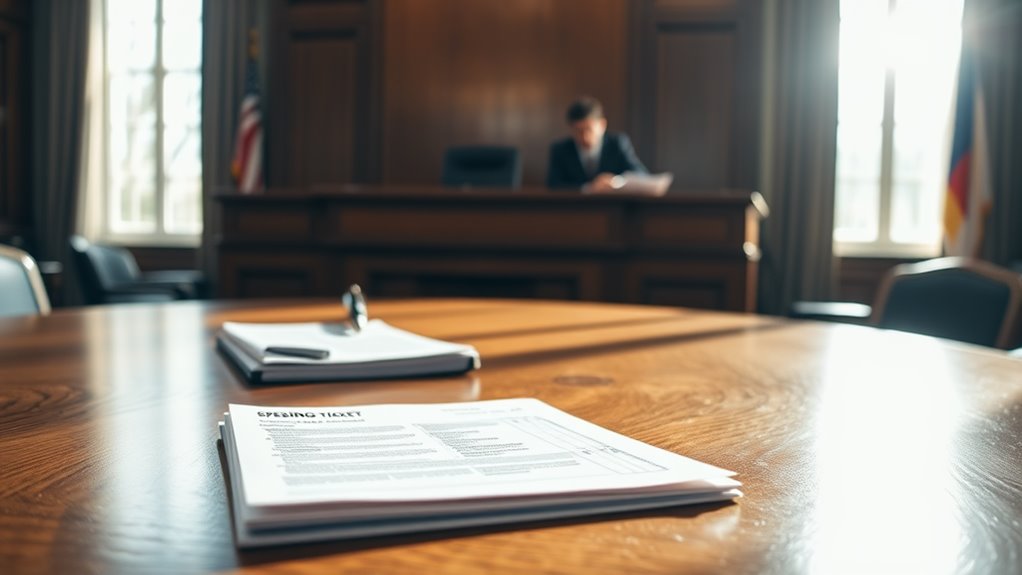What Expert Tips Help Win Speeding Ticket Appeals?
Think of your speeding ticket as a secured door, with the right strategies acting as your key to access it. To effectively challenge a speeding ticket, you need to gather solid evidence, understand local laws, and present a compelling case. Each detail can tip the scales in your favor, but knowing how to navigate this process is essential. What steps will you take to guarantee your appeal stands out?
Have you ever found yourself grappling with the intimidating task of appealing a speeding ticket? It can feel overwhelming, but understanding the process and employing effective strategies can markedly increase your chances of success. Start by gathering relevant evidence. Dashcam footage or photographs that can support your argument are essential assets. The more evidence you compile, the stronger your case will be.
Appealing a speeding ticket can be daunting, but effective strategies and strong evidence can significantly boost your chances of success.
It's also important to familiarize yourself with local traffic laws. Knowing the specific regulations in the jurisdiction where you received the ticket will help you build a solid defense. Understanding these laws allows you to identify any potential legal grounds for your appeal. Timing plays a significant role too; make sure you file your appeal within the designated timeframe—typically 30 days—to avoid complications. Appeals typically need to be filed within 30 days of ticket issuance.
Consider engaging a traffic attorney. While it may seem like an extra expense, having legal representation can markedly influence the outcome of your appeal. An attorney knows the ins and outs of traffic law and can help you navigate the court's procedures effectively. Understanding these procedures is critical; knowing what to expect can greatly ease your anxiety and improve your readiness for the hearing.
When you're preparing the appeal, pay close attention to the details. Complete the necessary forms accurately to avoid rejection or delays. Clearly state the legal reasons behind your appeal; this establishes its validity. Make sure to have all necessary documentation available, including the original ticket. Familiarize yourself with the appeal process to navigate the system smoothly.
During the appeal, you'll need to present your case effectively. Challenge the officer's opinion by disputing their subjective assessment of your speed, especially if it was based on specific conditions. You can argue against the accuracy of speed-measuring devices, questioning their calibration and reliability. If you have evidence that speeding was necessary to avoid harm, don't hesitate to present that as a valid argument.
Review the ticket for any errors that might lead to its dismissal, and gather witness statements if they can bolster your defense. Building a strong defense strategy is essential. Researching legal precedents in similar cases can provide powerful support for your appeal. Highlight any technical issues with speed measurement equipment or procedural mistakes that could undermine the prosecution's case.
If there were mitigating circumstances, such as personal emergencies, bring those to light; they can elicit sympathy from the court. Finally, consider the financial implications of your speeding ticket. Understand how it could potentially affect your insurance rates and weigh the costs of appealing against possible fines and penalties.
Conclusion
When facing a speeding ticket, don't just accept defeat. With the right evidence and a solid understanding of traffic laws, you can craft a compelling appeal. Challenge the officer's assessment and question the accuracy of speed-measuring devices. But remember, every detail counts—your success hinges on your preparation and strategy. So, as you gather your evidence and build your case, ask yourself: is this ticket really worth the fine, or can you turn the tables in your favor?

